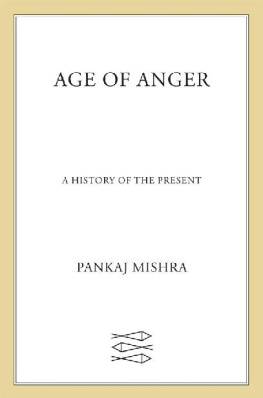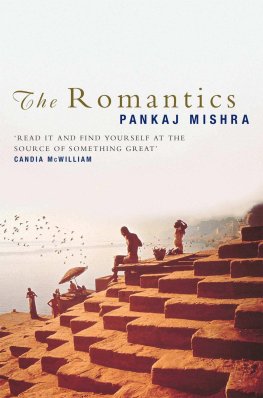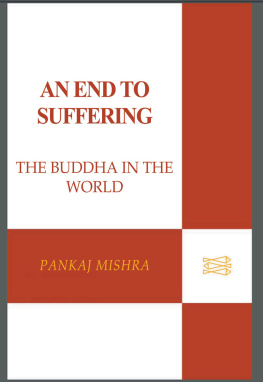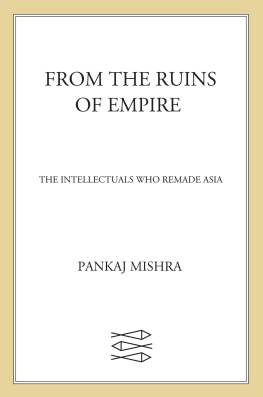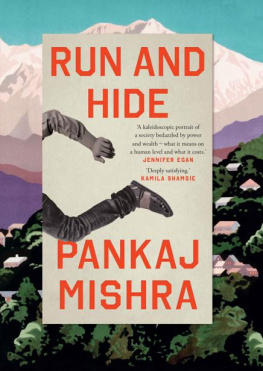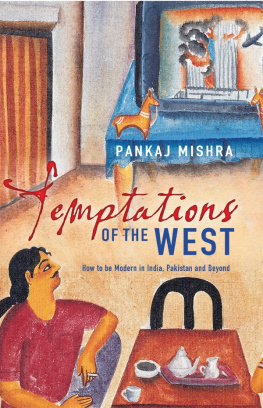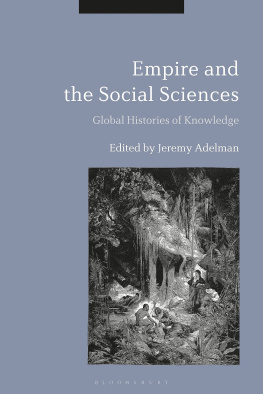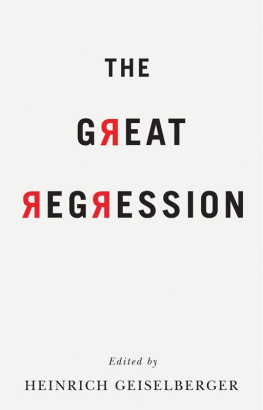
Thank you for buying this
Farrar, Straus and Giroux ebook.
To receive special offers, bonus content,
and info on new releases and other great reads,
sign up for our newsletters.

Or visit us online at
us.macmillan.com/newslettersignup
For email updates on the author, click here.
The author and publisher have provided this e-book to you for your personal use only. You may not make this e-book publicly available in any way. Copyright infringement is against the law. If you believe the copy of this e-book you are reading infringes on the authors copyright, please notify the publisher at: us.macmillanusa.com/piracy.
To my sisters, Ritu and Poonam, and their children, Aniruddh, Siddhartha and Sudhanshu
I started thinking about this book in 2014 after Indian voters, including my own friends and relatives, elected Hindu supremacists to power, and Islamic State became a magnet for young men and women in Western democracies. I finished writing it during the week in 2016 in which Britain voted to leave the European Union. It went to the printers in the week that Donald Trump was elected president of the United States. Each of these earthquakes revealed fault lines that I felt had been barely noticed over the years, running through inner lives as well as nations, communities and families. The pages that follow try to make sense of bewildering, and often painful, experiences by re-examining a divided modern world, this time from the perspective of those who came late to it, and felt, as many people do now, left, or pushed, behind.
Everywhere, people are awaiting a messiah, and the air is laden with the promises of large and small prophets we all share the same fate: we carry within us more love, and above all more longing than todays society is able to satisfy. We have all ripened for something, and there is no one to harvest the fruit
Karl Mannheim (1922)
In September 1919 the Italian poet Gabriele DAnnunzio, accompanied by two thousand Italian mutineers, occupied the Adriatic town of Fiume. The writer and war hero, one of the most famous Europeans of his time, had long wanted to capture all the territories that he believed had always been part of Mother Italy. In 1911 he had zealously supported Italys invasion of Libya, an expedition whose savagery stoked outrage across the Muslim world. Amid the chaos at the end of the First World War, and with the collapse of the regions previous ruler, DAnnunzio saw a chance to realize his dream of rejuvenating Italian manhood through violence.
Installed as il Duce of the Free State of Fiume, DAnnunzio created a politics of outrageous rhetoric and gestures politics in the grand style. He invented the stiff-armed salute, which the Nazis later adopted, and designed a black uniform with pirate skull and crossbones, among other things; he talked obsessively of martyrdom, sacrifice and death. Benito Mussolini and Adolf Hitler, then obscure men, were keen students of the pseudo-religious speeches this shaven-headed man delivered daily on his balcony to his black-shirted legionnaires (before retreating to his sexual partners of the day).
Eager volunteers testosterone-driven teenagers as well as pedantic socialists came from places as far away as Ireland, India and Egypt to join Fiumes carnival of erotic militarism. For them, life, devoid of its old rules, seemed to be beginning all over again: a purer, more beautiful and honest existence.
As the months passed, and his sexual appetite and megalomania deepened, DAnnunzio began to see himself leading an international insurrection of all oppressed peoples. In practice, this short-statured man of humble provincial origins, a parvenu who tried to pass himself off as an aristocrat, remained simply an opportunistic prophet for angry misfits in Europe: those who saw themselves as wholly dispensable in a society where economic growth enriched only a minority and democracy appeared to be a game rigged by the powerful.
Frustrated men had defined whole new modes of politics, from nationalism to terrorism, since the French Revolution. Many in France itself had long been affronted by the hideous contrast between the glory of both the revolution and the era of Napoleon and the mean compromises that followed of economic liberalism and political conservatism. Alexis de Tocqueville had repeatedly called for a great energizing adventure: the domination and subjugation of the Algerian people and the creation of a French Empire in North Africa. As the century ended, a trash-talking demagogue called General Georges Boulanger rose swiftly on the back of mass disgust over moral scandals, economic setbacks and military defeats, and came perilously close to seizing power.
In the 1890s, as the first phase of economic globalization accelerated, xenophobic politicians in France demanded protectionism while targeting foreign workers angry Frenchmen massacred dozens of Italian immigrant labourers in 1893. White supremacists in the United States had already stigmatized Chinese workers with explicitly racist laws and rhetoric; these were meant, along with segregationist policies against African-Americans, to restore the dignity of a growing number of white wage slaves. Demagogues in Austria-Hungary, who scapegoated Jews for the mass suffering inflicted by the anonymous forces of global capitalism, sought to copy anti-immigrant legislation introduced in America. The Western scramble for Asia and Africa in the late nineteenth century revealed that the political therapy offered by Cecil Rhodes he who would avoid civil war must be an imperialist had become increasingly seductive, especially in Germany, which, though successfully industrialized and wealthy, had fostered many angry malcontents and proto-imperialists. At the dawn of the twentieth century, as the world experienced global capitalisms first major crises, and the greatest international migration in history, anarchists and nihilists seeking the liberation of individual will from old and new shackles burst into terroristic violence. They murdered numerous heads of state, including one American president (William McKinley), in addition to countless civilians in crowded public spaces.
DAnnunzio was only one of the many manipulators in a political culture wrought by the Wests transition to industrial capitalism and mass politics what the Indian poet Rabindranath Tagore, touring the United States in 1916, called a dense poisonous atmosphere of world-wide suspicion and greed and panic. In Italy, the invasive bureaucracy of the new state, and its brazen indulgence of a rich minority, made the young in particular more vulnerable to fantasies of vengeful violence. As The Futurist Manifesto , produced in 1909 by DAnnunzios admirer the poet Filippo Marinetti, proclaimed:
We want to glorify war the worlds only hygiene militarism, patriotism, the destructive act of the anarchists, the beautiful ideas for which one dies, and contempt for women. We want to destroy museums, libraries and academies of all kinds.
For fifteen months in Fiume, DAnnunzio rabble-roused through his experiment in beautiful ideas, in contemptuous defiance of all the worlds great military powers. His occupation ended tamely, after the Italian navy bombarded Fiume in December 1920, forcing DAnnunzio to evacuate the city. But a whole mass movement Mussolinis fascism carried on where he had left off. The poet-imperialist died in 1938, three years after Italy had invaded Ethiopia a ferocious assault that he predictably applauded. Today, as alienated radicals from all over the world flock to join violent, misogynist and sexually transgressive movements, and political cultures elsewhere suffer the onslaught of demagogues, DAnnunzios secession moral, intellectual and aesthetic as well as military from an evidently irredeemable society seems a watershed moment in the history of our present: one of many enlightening conjunctures that we have forgotten.
Next page
